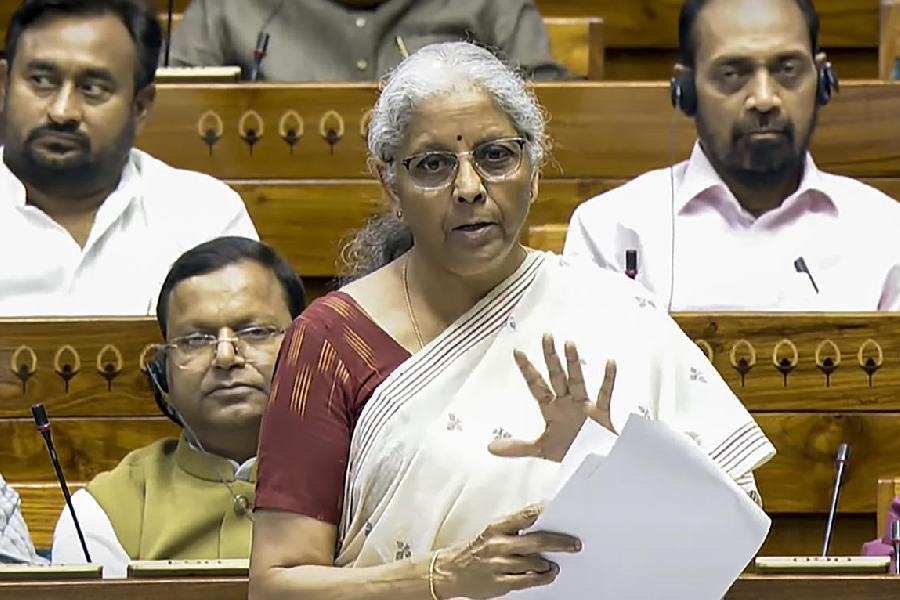The new Income Tax Bill is expected to be discussed in the upcoming monsoon session of Parliament, finance minister Nirmala Sitharaman said on Tuesday.
Responding to discussions on the Finance Bill 2025 in the Lok Sabha, Sitharaman stated that the new tax bill — introduced in the House on February 13 — is currently under review by the select committee. The committee has been directed to submit its report by the first day of the next parliamentary session. “…We will take it (the new Income Tax Bill) up in the monsoon session,” the finance minister said.
The monsoon session of Parliament typically takes place between July and August. The revised Income Tax Bill aims to simplify tax laws by reducing complexity, ensuring tax certainty, and minimising litigation.
Finance Bill passed
The Lok Sabha on Tuesday passed the Finance Bill 2025, along with 35 amendments, including changes such as abolishing a 6 per cent digital tax on online advertisements, relaxation of the requirement of tracking indirect investments by Indian residents in offshore funds managed by Indian fund managers, along with changes in proposed block assessments.
With regard to the amendment regarding the abolition of the 6 per cent Equalisation Levy on online advertisements — a move that is widely expected to benefit advertisers on digital platforms such as Google, X and Meta, Sitharaman said it was done to address “uncertainty in the international economic conditions”.
The Finance Bill 2025 had also proposed to streamline the requirement to track Indian participation in an offshore fund from an ongoing obligation to a biannual one.
“A welcome change made pursuant to representations by multiple stakeholders is the relaxation of the requirement of tracking indirect investments by Indian residents in offshore funds managed by Indian fund managers. This may pave the way for management of global funds from India without triggering tax consequences in India,” EY said in its analysis of the amendments to the Finance Bill 2025.
The amended Finance Bill 2025 also restricts the scope of the new block assessment regime to assess “total undisclosed income” instead of “total income”, ensuring that the new regime applies only to undisclosed income.
“This is a classic example of legislative flip-flop by reintroduction of the pre-2003 regime with certain modifications, which the legislature, perhaps, believes can prevent the high rise of litigation. The amendments are, nonetheless, welcome as they overcome the ambiguities in the New Block Assessment Regime as introduced vide Finance (No. 2) Act, 2024,” EY said.
With the passage of the Finance Bill 2025, the Lok Sabha completed its part of the Budgetary approval process. The Upper House, Rajya Sabha, will now consider the Bill.
After the Rajya Sabha clears the Bill, the Budget process for 2025-26 will be complete.











